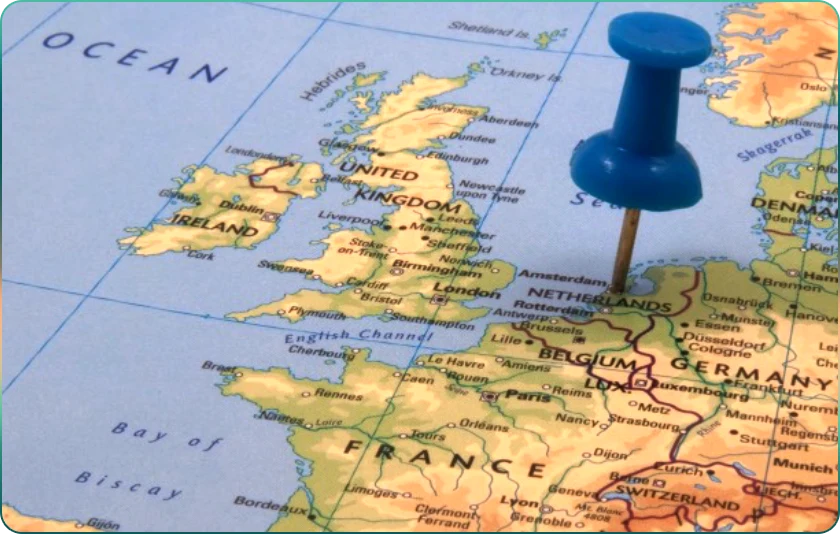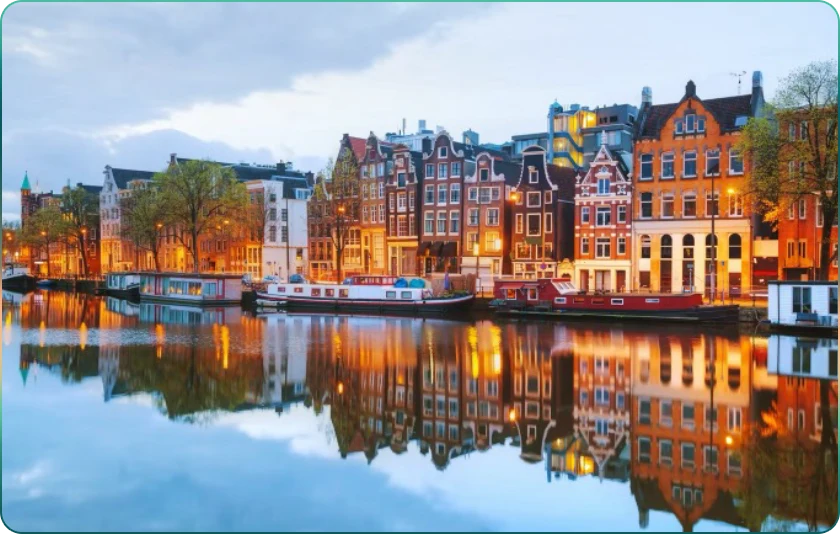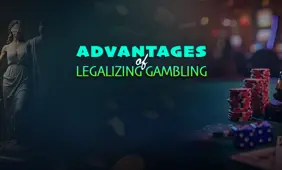Influence of Stricter Advertising Laws on the Dutch Gambling Market

The Netherlands has undergone a significant transformation in its approach to gambling advertising in recent years. With the introduction of the Remote Gambling Act (Wet Kansspelen op Afstand or KOA) in April 2021, the Dutch market opened its doors to licensed online gambling operators for the first time. This legal change substantially altered the wagering landscape and dramatically increased advertising as operators sought to establish themselves in a newly liberalised market.
However, the surge in gambling-related ads drew criticism from public health organisations, advocacy groups, and political figures, who raised concerns about the impact of these ads on young people and vulnerable individuals. The concerns were fuelled by the substantial number of ads appearing on television, social media, and public platforms, causing an outcry that the advertising was contributing to gambling addiction.
As a result, the Dutch government introduced stricter regulations in July 2023 to curb the visibility of gambling advertisements. These new measures include a ban on untargeted gambling advertising across television, radio, and outdoor platforms, substantially reducing the number of ads seen by the general public. In addition, online gambling ads now face enhanced scrutiny to ensure they are not directed at minors or other vulnerable audiences. The shift has forced brands to rethink their strategies and adapt to a more regulated environment.

How Do Major Gambling Operators Remain Competitive?
Despite the regulatory changes, several major gambling brands have demonstrated resilience and continue to operate, maintaining a strong presence in the Dutch gambling market. Following the introduction of the Dutch Remote Gambling Act (Kansspelwet op afstand) in 2021, many international and domestic operators have either adapted to the new regulatory landscape or ceased operations. However, some of the biggest names have remained competitive while complying with the tightened rules, providing a sense of stability in the industry.
One of the most prominent domestic brands is Holland Casino, which operates land-based casinos across the Netherlands. Owned by the Dutch state, Holland Casino has long been a significant player in the market. It has successfully launched its online platform to align with the growing demand for digital gambling. As a result, the brand remains one of the most recognisable and trusted names in Dutch gambling, offering a range of casino games and sports betting options.
In addition to Holland Casino, Toto remains a significant force in the sports betting sector. Run by Nederlandse Loterij, Toto has deep roots in the Dutch betting scene and has expanded its offerings since the liberalisation of the online market. Its long-established presence and state affiliation make it a significant competitor in brick-and-mortar casinos as well as online sports betting.
International brands such as bet365 have also maintained a foothold in the Dutch market, leveraging their global reach and comprehensive platforms to attract Dutch customers. bet365's robust sportsbook and casino offerings have made it a favourite among Dutch players, particularly as the company navigates the changing regulatory environment.
While the new gaming advertising restrictions have posed challenges for all operators, these significant brands remain integral to the Dutch gambling landscape, ensuring a competitive market despite the regulatory hurdles.
Reasons Behind the Stricter Dutch Regulations
The substantial regulatory shift around gambling advertising in the Netherlands can be traced back to several key concerns. First and foremost, public health experts and government officials have been alarmed by the potential link between widespread betting advertisements and the rise of problem gambling. Reports suggested a significant increase in gambling addiction, particularly among young people, which led to calls for more robust consumer protection measures.
The visibility of gambling adverts on social media and television was seen as a significant contributor to these risks. In particular, ads often reached individuals who were not of legal gambling age or who were more susceptible to addictive behaviours. As such, public and political pressure mounted, leading the Dutch government to intervene.
In addition, there was substantial pressure from advocacy groups to ensure that gambling was not promoted in the same way as other consumer products. These groups argued that the risks associated with gambling were unique, as it could quickly escalate from a form of entertainment into a severe addiction. Therefore, stricter advertising regulations were necessary to protect those most at risk.
The decision to implement these measures also follows a broader European trend of imposing stricter laws on gambling advertising. Countries like Spain and Italy have already introduced similar restrictions, setting a precedent for the Netherlands. As a result, the Dutch government sought to align itself with the growing movement towards consumer protection, particularly where gambling is concerned.
Implications for the Gambling Industry
The introduction of these new regulations has had significant implications for the gambling industry in the Netherlands. The ban on untargeted advertising has forced operators to substantially alter their marketing strategies, focusing more on targeted, personalised campaigns. This has been particularly challenging for operators who previously relied on mass media channels such as television and outdoor advertising to build brand awareness.
In addition, the restrictions have led to a substantial increase in the importance of digital marketing. Operators rely heavily on data-driven strategies to ensure their gambling adverts reach the target audiences. This shift requires brands to significantly improve their targeting capabilities, ensuring that ads are only seen by individuals of legal age who have consented to receiving gambling-related content.
As a result, operators are also investing in new technologies, such as artificial intelligence (AI) and machine learning, to understand consumer behaviour better and tailor their advertisements accordingly. This technological advancement allows for more precise targeting, reducing the risk of ads being shown to minors or other vulnerable groups. Brands that adapt to these new demands may need help to maintain their presence in the market, particularly as the penalties for non-compliance with the regulations can be substantial. This technological innovation gives hope for a more compliant and responsible gambling industry in the future.
The emphasis on responsible gambling messages has also grown significantly. Operators are now required to include clear and prominent warnings about the risks of gambling in all advertisements. In addition, many brands are introducing features such as self-exclusion tools and deposit limits to help users manage their gambling habits responsibly. This shift towards a more responsible and ethical approach to customer engagement is a positive evolution in the industry, which could lead to a long-term shift in how gambling operators interact with their audience.
Potential Risks and Opportunities for Gamblers
While the new advertising regulations for gambling are designed to protect consumers, potential risks and unintended consequences may arise. One concern is that the reduction in visible advertising could drive some players to seek out illegal or unregulated gambling operators, which are not subject to the same restrictions. This could expose consumers to more significant risks, as unregulated sites often lack the same level of consumer protection and responsible gambling measures as their legal counterparts.
In addition, there is a risk that operators may resort to more aggressive digital marketing tactics, such as influencer partnerships, which can be more difficult for regulators to monitor. These methods may still reach vulnerable groups, undermining the effectiveness of the regulations.
On the other hand, the new regulations offer a significant opportunity for consumers to engage with more responsible and ethical gambling operators. With a greater focus on personalised, targeted advertising, players may be exposed to fewer unsolicited promotions and more tailored offers that match their preferences. In addition, the emphasis on responsible gambling tools could help prevent the development of problem gambling behaviours, fostering a safer gambling environment overall.
As such, the future of gambling advertising in the Netherlands may lead to a more balanced market where operators are incentivised to promote responsible gambling while still growing their businesses. The key will be ensuring that the regulations are enforced effectively and that consumers are aware of the risks associated with gambling, especially in the digital space.

Innovation in Dutch Gambling Advertising
Following these regulatory changes, gambling brands operating in the Netherlands must adapt to a more controlled advertising environment. However, this shift also presents new opportunities for innovation and strategic rethinking. Brands that can successfully navigate compliance challenges while engaging with their audience meaningfully will likely emerge stronger.
One potential direction for brands is to invest heavily in customer loyalty and retention programs. With the restrictions on broad advertising, operators may benefit more from deepening relationships with their existing customer base rather than aggressively pursuing new customers. Personalised promotions, enhanced customer service, and responsible gambling features could foster long-term loyalty and trust.
In addition, brands may explore partnerships with responsible gambling organisations and align their advertising with broader social responsibility goals. This could help mitigate negative perceptions of gambling advertising and position operators as leaders in responsible gambling. Such strategies would comply with the new regulations and build goodwill among regulators and consumers.
Brands should also embrace technological innovation, such as AI, to improve the precision of their marketing efforts. By leveraging data analytics and machine learning, gambling operators can ensure their ads reach the right audience without violating the new rules. This would allow them to maximise the efficiency of their advertising spend while still adhering to regulatory demands.
Ultimately, gambling adverts in the Netherlands will be shaped by brands' ability to adapt to a more controlled and responsible environment. Operators who invest in responsible gambling, customer engagement, and technology are likely to succeed in this new landscape. The key will be striking the right balance between growth and compliance, ensuring that the industry and consumers benefit in the long term.





Review this Blog
Leave a Comment
User Comments
comments for Influence of Stricter Advertising Laws on the Dutch Gambling Market